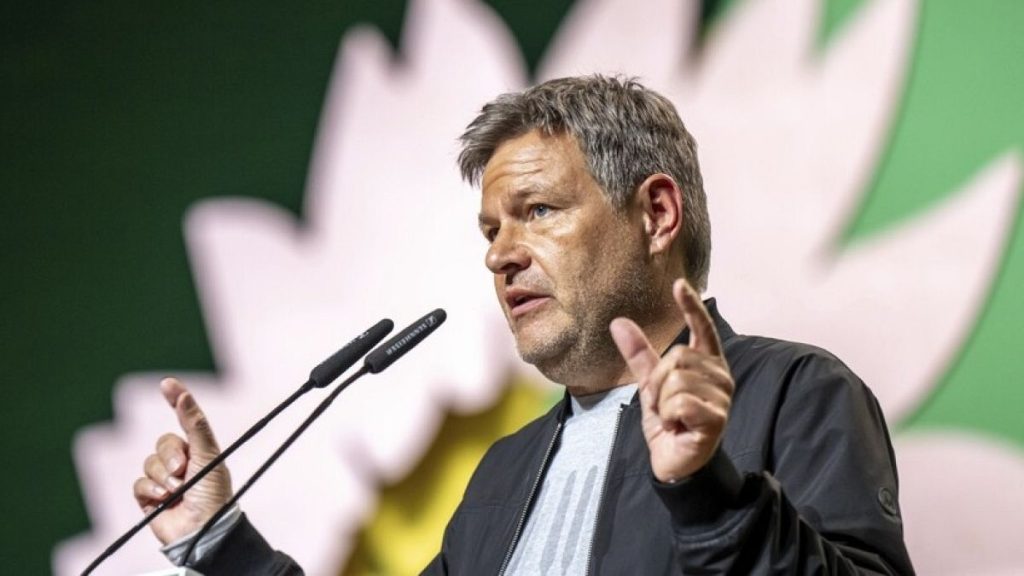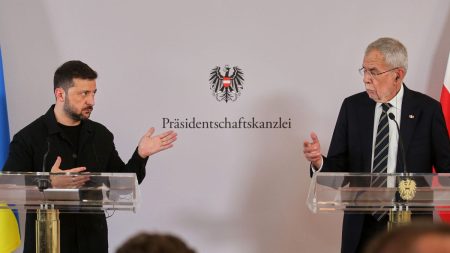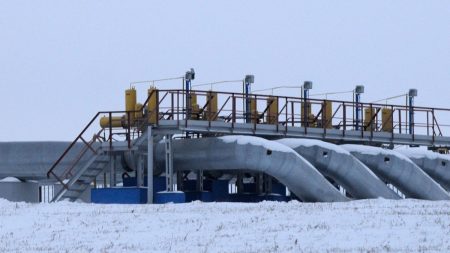The German Political Landscape Heats Up: A Deep Dive into Election Campaigns
Germany’s political arena is buzzing with activity as major parties launch their campaigns for the upcoming federal elections on February 23rd. The Greens, led by Chancellor candidate Robert Habeck, kicked off their campaign with a rally in Lübeck, attracting double the expected crowd. Habeck immediately targeted previous governments under the Christian Democratic Union (CDU) and Christian Social Union (CSU), placing blame on them for the country’s current economic woes, specifically citing investment gaps in education, infrastructure, and transportation. While acknowledging the current "traffic light coalition’s" (SPD, FDP, and Greens) share of responsibility, Habeck argued that the Union’s long-term policies, particularly under former CSU transport ministers, laid the foundation for the present challenges. He positioned the Greens as a solutions-oriented party, emphasizing their commitment to addressing pressing issues like job insecurity and social anxiety. Habeck also criticized the Union’s campaign strategy, accusing them of offering simplistic solutions to complex problems, particularly regarding migration. The Greens propose tackling rising rents with rent caps and stimulating economic growth through tax incentives for investments.
Meanwhile, the CSU, led by Markus Söder, held their winter retreat in Bavaria’s Seeon Monastery, setting their own agenda for the upcoming elections. Söder echoed concerns about the German economy, citing rising bankruptcies, unemployment, and declining investments. He stressed the need for a change in policy direction, emphasizing economic stability as crucial for a healthy democracy. The CSU rejected the Greens’ economic policies as ineffective and costly, advocating for tax cuts and a pro-nuclear energy approach. They also took a hard line on migration, proposing stricter punishments for migrant offenders and linking residency rights to employment and financial independence. Söder explicitly ruled out a coalition with the Greens, criticizing their competence to govern, and warned that the CDU’s openness to a black-green coalition could drive voters towards the Alternative for Germany (AfD). The CSU plans to promote the German auto industry, particularly electric car production, through targeted premiums. Their three-day retreat also included a speech by CDU chancellor candidate Friedrich Merz, showcasing their joint election program, and hosted representatives from the business world and foreign politicians.
The clashing visions of the Greens and the CSU highlight starkly different approaches to addressing Germany’s challenges. The Greens, with their focus on social equity and sustainable solutions, contrast with the CSU’s emphasis on economic liberalism and stricter migration policies. The election campaign promises to be a battleground of competing ideologies, with each party vying for the support of the German electorate.
A Deeper Look at the Greens’ Campaign Strategy
The Greens, under Robert Habeck’s leadership, are attempting to strike a balance between acknowledging the current government’s shortcomings and emphasizing the historical responsibility of previous administrations. This strategy allows them to address public concerns about the present while simultaneously positioning themselves as a forward-thinking alternative. Habeck’s focus on "real problems" like job insecurity and social anxiety aims to connect with voters on a personal level, highlighting the Greens’ commitment to addressing their everyday concerns. Their proposals for rent caps and investment incentives are designed to appeal to a broad electorate, particularly those struggling with rising living costs and economic uncertainty. By targeting the Union’s campaign rhetoric, Habeck aims to portray them as out of touch with the complexities of governing, positioning the Greens as the party with practical, evidence-based solutions.
Dissecting the CSU’s Political Maneuvering
The CSU, under Markus Söder’s leadership, is taking a decidedly more conservative approach, focusing on economic growth and stricter law-and-order policies. Their emphasis on tax cuts and a pro-business agenda seeks to appeal to traditional conservative voters and the business community. Their hardline stance on migration is a clear attempt to differentiate themselves from the Greens and appeal to voters concerned about immigration. Söder’s explicit rejection of a coalition with the Greens serves multiple purposes. It solidifies the CSU’s position within the conservative bloc, signals a clear alternative to the current "traffic light coalition," and attempts to prevent vote splitting among right-leaning parties. The focus on supporting the German auto industry, a symbol of national pride and economic strength, resonates with a broad segment of the population. By hosting CDU chancellor candidate Friedrich Merz, the CSU reinforces their partnership within the Union while showcasing a united front.
The Broader Implications for German Politics
The upcoming German elections have far-reaching implications not only for the country’s domestic policies but also for its role within the European Union. The outcome of the election will determine the direction of Germany’s economic and social policies, its approach to climate change, and its stance on migration and integration. The election will also shape Germany’s relationship with its European partners and its influence on EU policymaking. The rise of the AfD adds another layer of complexity to the political landscape, potentially influencing the formation of future governing coalitions and the overall direction of German politics. The campaigns of both the Greens and the CSU, with their contrasting visions for the future of Germany, represent two distinct paths for the country. The choice ultimately rests with the German electorate.
Contesting Narratives and the Battle for Public Opinion
The election campaigns will be a battleground for competing narratives. The Greens will attempt to frame the election as a choice between a sustainable, socially just future and a return to outdated policies that exacerbate inequality. They will highlight their commitment to addressing climate change, promoting social justice, and strengthening European integration. The CSU, on the other hand, will likely portray the election as a choice between economic prosperity and stagnation, between strong leadership and weak governance. They will emphasize their commitment to promoting economic growth, strengthening national security, and controlling migration. The success of each party’s narrative will depend on their ability to connect with voters and persuade them that their vision offers the best path forward for Germany.
The Role of Coalition Politics in Shaping the Future Government
Given the fragmented nature of the German political landscape, coalition politics will inevitably play a crucial role in shaping the future government. The willingness of parties to compromise and cooperate will determine the stability and effectiveness of the next administration. The CSU’s explicit rejection of a coalition with the Greens adds a significant constraint to the potential coalition options. The CDU’s openness to a black-green coalition, on the other hand, could pave the way for a new political alliance, but it also carries the risk of alienating conservative voters. The intricate dance of coalition negotiations will likely unfold in the weeks following the election, shaping the political landscape for years to come. The election outcome and the subsequent coalition formation will have a profound impact on Germany’s domestic and foreign policy agenda, shaping the country’s future trajectory within Europe and on the global stage.










